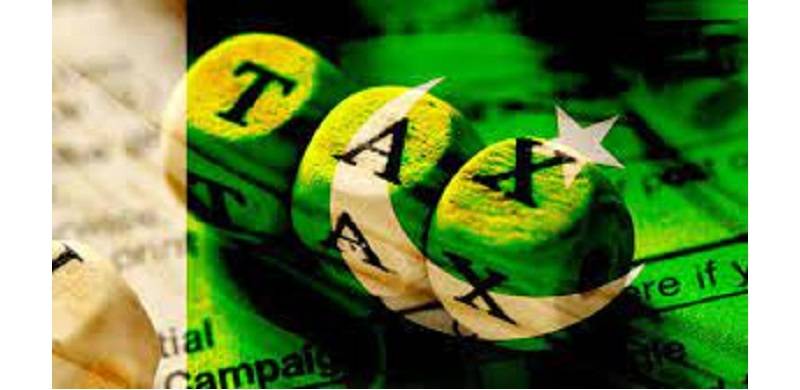
In the aftermath of the PM’s speech, the Pakistan Stock Exchange plummeted, as the KSE-100 index saw a 2,053-point drop before trading was halted. The sectors to be taxed include sugar, oil and gas, cement, steel, airlines, fertilisers, LNG terminals, textile, banking, automobile, cigarettes, beverages, and chemicals.
Supporters of the new measure have used the hashtag #TaxTheRich to express their view. Meanwhile, a number of leaders and supporters of the former ruling PTI have expressed their opposition to the measures announced. PTI General Secretary Asad Umar opined that it would “rattle the economy” and that it will be “a huge blow to the growing industries.”
Meanwhile former federal minister from the PTI Hammad Azhar tweeted that this would mean “taxing the already taxed even more.”
Industry is already facing crippling costs due to rising prices of commodoties and energy. This super tax will be priced in their balance sheets and passed on to the customers in many cases. Means even higher prices for the public. https://t.co/4op4vlgKg1
— Hammad Azhar (@Hammad_Azhar) June 24, 2022
Former finance minister Shaukat Tarin told the government that the market “does not believe you.”
Miftah Mian,with an overseas PhD, should have enabled you to acknowledge your own approved Economic survey which documents stellar PTI performance in the last two https://t.co/uJuVUKm6n1 refuse to accept it as it exposes your https://t.co/xmC7X4duMk does not believe you.
— Shaukat Tarin (@shaukat_tarin) June 24, 2022
The PTI’s Fawad Chaudhry highlighted the stock market’s response to the new measure:
جب وزیراعظم اور وزیر خزانہ کی میڈیا سے گفتگو کے بعد اسٹاک مارکیٹ بری طرح کریش کر جائے اورکرنسی کی قدر بری طرح کم ہو جائے ان حالات سےحکومت پر اعتماد کا اندازہ لگایا جاسکتا ہے،حکومت کی معاشی پالیسیاں پاکستان کو دیوالیہ کر رہی ہیں اس ٹولےسے جلد از جلد نجات ہی پاکستان کامفاد ہے
— Ch Fawad Hussain (@fawadchaudhry) June 24, 2022
Many voices on social media, especially a number of economy-watchers, have welcomed the decision by the government, arguing that it prevents the tax burden from being shifted further onto middle-income earners.
Finance and economy journalist Khurram Hussain joined the chorus of support for the ‘Super Tax’ announced today:
Tax the rich! https://t.co/ry7FPxwVLI
— Khurram Husain (@KhurramHusain) June 24, 2022
Economist Ammar Khan tweeted:
people be like please tax my income more but pls don't tax the corporate overlord who largely exists b/c of government handouts or subsidies or government endowed monopoly position..
— Ammar Khan (@rogueonomist) June 24, 2022
Director of the Pakistan Initiative at the Atlantic Council’s South Asia Center Uzair Younus tweeted:
people be like please tax my income more but pls don't tax the corporate overlord who largely exists b/c of government handouts or subsidies or government endowed monopoly position..
— Ammar Khan (@rogueonomist) June 24, 2022
Economics scholar Zehra Farooq concluded a thread on the background to the ‘Super Tax’ measure by tweeting:
When faced with an economic crisis, developing & developed nations have two options: raise taxes or lower spending & sometimes critical needs demand both measures to be adopted in unison. During recessions, even in US, it hasn’t been uncommon for states to raise taxes by 5%.
— Zehra Farooq (@ZehraFarooq) June 24, 2022
Commentators took a comparative view of the ‘Super Tax’ with other possible measures that might have been adopted in the current situation:
A lot of people criticizing the supertax on industries don't realize that it was either that or a further increase in income and sales taxes https://t.co/0hoCbjpPE2
— غفران خالد (@not_ghuf) June 24, 2022
Ultimately, the passed on cost will be less than a direct taxation of the middle and lower middle class, which was the alternative.
— Sousuke Sagara stan acc (@pakistansagara) June 24, 2022
For his part, historian Ammar Ali Jan commented:
Taxing corporate sector that received privileges worth Rs. 724 billion per year, is a step in right direction. It should be extended to landed elites (rural & urban) and combined with strict implementation of labour/environmental regulations. Reject blackmail from rentier elites.
— Ammar Ali Jan (@ammaralijan) June 24, 2022

